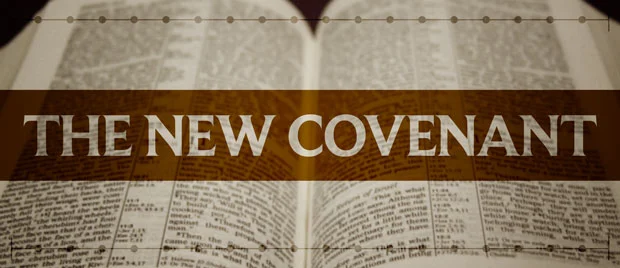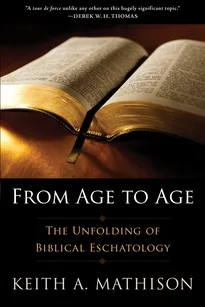
Commentators often refer to chapters 30–33 of Jeremiah as the "Book of Consolation."1 This section of the book has been given this name because, as J.A. Thompson explains, "it gives expression to hopes for the future rather than judgment which characterizes earlier chapters."2 Earlier chapters of Jeremiah were not without occasional references to future restoration after the judgment of exile, but the theme was not prominent. Here the themes of restoration and hope move to the forefront and are developed extensively. This section of the book reaches its climax in Jeremiah's prophecy of a new covenant in chapter 31.
Although this section of Jeremiah has a unified theme, it comprises different literary genres. Chapters 30 and 31 are almost completely poetic, while chapters 32 and 33 are prose narrative. In chapter 30, the Lord assures the people that he will restore them to the land. Jeremiah writes:
For behold days are coming, declares Yahweh, when I will restore the fortunes of my people, Israel and Judah, says Yahweh, and I will bring them back to the land that I gave to their fathers, and they shall take possession of it. (Jer. 30:3) The expression "days are coming" is fairly common among the prophets, and it simply refers to an unspecified future time (cf. Isa. 39:6; Jer. 7:32; Amos 8:11; 9:13).3 The Lord also promises to renew his covenant relationship, telling the people that in that day, "you shall be my people, and I will be your God" (Jer. 30:22).
Jeremiah 31 contains one of the most significant prophecies in the Old Testament, the promise of a new covenant (vv. 31–34). Jeremiah begins the chapter by describing Israel's captivity using the imagery of the wilderness wandering (31:1–6). He then celebrates the coming restoration of Israel to her homeland (vv. 7–14). Jeremiah uses the imagery of Rachel weeping for her children to describe the extreme grief caused by the exile (v. 15). But the promised restoration of Israel from exile means the end of Rachel's mourning (vv. 16–22). "There is hope for your future, declares Yahweh, and your children shall come back to their own country" (v. 17). Following another promise of restoration (31:23–26), Jeremiah speaks of the days to come using the six words found in 1:10, "And it shall come to pass that as I have watched over them to pluck up and break down, to overthrow, destroy, and bring harm, so I will watch over them to build and to plant, declares Yahweh" (v. 28).
One of the most fundamental teachings found within the pre-exilic prophets is that Israel has failed to keep God's covenant and that due to this failure to obey, judgment is coming. The history of Israel from the time of Moses onward is a history of almost continual disobedience and apostasy. Both Moses and Joshua had indicated that Israel was incapable of obeying God's law, and Israel had proven them correct (cf. Deut. 31:16–18, 20–21; Josh. 24:19). Now exile is imminent, but God is promising restoration. If the covenant relationship is to be restored, how will this happen?
Isaiah had hinted at the prospects of a new covenant many times (cf. Isa. 42:6; 49:8; 54:10; 55:1–5; 59:21; 61:1–9). Now Jeremiah brings the nature of this covenant into clearer focus in 31:31–34.
Behold the days are coming declares Yahweh, when I will make a new covenant with the house of Israel and the house of Judah, not like the covenant that I made with their fathers on the day when I took them by the hand to bring them out of the land of Egypt, my covenant that they broke, though I was their husband, declares Yahweh. But this is the covenant that I will make with the house of Israel after those days, declares Yahweh: I will put my law within them, and I will write it on their hearts. And I will be their God, and they shall be my people. And no longer shall each one teach his neighbor and each his brother, saying, 'Know Yahweh,' for they shall all know me, from the least of them to the greatest, declares Yahweh. For I will forgive their iniquity, and I will remember their sin no more.
As Harrison rightly observes, "The prophecy of Jeremiah marks a watershed in Hebrew religious and cultic life."4
Jeremiah places the inauguration of the new covenant at an unspecified time in the future: "the days are coming" (v. 31). All that is certain, in light of the context, is that it will not occur until after the time of exile. The concept of a "new covenant" is found elsewhere in the prophets (e.g. Ezek. 37:26). However, the specific term (berit hadashah) is found only here in the Old Testament. The need for this new covenant is evident. The covenant that was established at Sinai has been broken by Israel. It must, as O. Palmer Robertson explains, be superseded by another covenant.5 This is precisely what the Lord promises to do. The covenant will be made with "the house of Israel and the house of Judah." In other words, a new covenant will be made with those who broke the old covenant.6
The emphasis in verses 32–33 is upon the discontinuity between the old covenant and the new covenant, but the discontinuity is not total. The Lord emphasizes discontinuity when he declares that the new covenant is "not like the covenant that I made with their fathers" (v. 32).7 Both discontinuity and continuity are evident in the next verse, "I will put my law within them, and I will write it on their hearts" (v. 33). Under the old covenant, the law was written on tablets of stone (cf. Exod. 24:12; 34:1). Under the new covenant, the law will be written on the hearts of God's people. Herein lies one major element of discontinuity. Yet the continuity is evident in that it is "the law" that is written on the hearts of his people.8 God himself will make the necessary changes within the hearts of his people (cf. Deut. 30:6).9
Under the old covenant, the people had to be continually instructed to do the law and to remember the law (cf. Deut. 4:23; 5:1, 32; 6:3, 12; 8:11; etc.). In verse 34, the Lord declares that with the law inscribed on the people's hearts, this will no longer be necessary because all will know the Lord. Finally, in one of the most profound promises involved with the new covenant, the Lord says, "I will forgive their iniquity, and I will remember their sin no more." Under the old covenant, provisions were made for the forgiveness of sin by means of the various sacrifices. But these sacrifices had to be constantly repeated, indicating that they had no inherent power within themselves to remove sin (cf. Heb. 10:1–10). Under the new covenant, the shadows will be replaced by the reality, and God will not only "forgive their iniquity" but also "remember their sin no more."
Following the prophecy of the new covenant is a declaration of the inseparable bond between God and Israel. The permanence of God's relationship with Israel is compared to the permanence of the created order.
Thus says Yahweh, who gives the sun for light by day and the fixed order of the moon and the stars for light by night, who stirs up the sea so that its waves roar—Yahweh of hosts is his name: "If this fixed order departs from before me, declares Yahweh, then shall the offspring of Israel cease from being a nation before me forever." Thus says Yahweh: "If the heavens above can be measured, and the foundations of the earth below can be explored, then I will cast off all the offspring of Israel for all that they have done, declares Yahweh" (vv. 35–37).
This promise is noteworthy because it is stated in absolutely unconditional terms. For those facing the prospect of seventy years of exile, it is a source of great hope for the future of Israel.10
This article is part of the The Unfolding of Biblical Eschatology collection.
-
Cf. Jack R. Lundbom, Jeremiah 21–36 (New York: Doubleday, 2004), 368; J. A. Thompson, The Book of Jeremiah (Grand Rapids: Eerdmans, 1980), 551; R. K. Harrison, Jeremiah and Lamentations (Downers Grove, IL: InterVarsity, 1973), 133. ↩
-
Thompson, Jeremiah, 551. ↩
-
Thompson, Jeremiah, 553. ↩
-
Harrison, Jeremiah and Lamentations, 138. ↩
-
O. Palmer Robertson, The Christ of the Covenants (Phillipsburg, NJ: P&R, 1980), 272; cf. also William J. Dumbrell, Covenant and Creation: A Theology of Old Testament Covenants, 1984), 164. ↩
-
In our examination of the New Testament, the relationship between "Israel" and believing Gentiles will be explored in more detail. Here it is only necessary to make a few observations that will prepare for that discussion. First, it is evident from our reading of the history of God's people that any Gentile could become a part of "Israel" by confessing faith in Yahweh (e.g. Ruth). Gentiles could become "my people" and Jews could become "not my people" (cf. Exod. 12:43–48; Hos. 1:9). However, although this is an important truth, it must also be remembered that in Jeremiah's day, at this stage in the progress of God's revelation, "Israel" was primarily understood as the ethnic community descended from Abraham, Isaac, and Jacob. "Israel" was a people distinguishable from the surrounding Gentile peoples, whether they were Assyrians, Egyptians, or Philistines. This is how Jeremiah uses the term here. ↩
-
Emphasis mine. ↩
-
Robertson, Christ of the Covenants, 281–82. ↩
-
Thompson, Jeremiah, 581. ↩
-
It is a hope that will also be echoed in the New Testament in the writings of the Apostle Paul (cf. Rom. 11:1, 28–29). ↩



